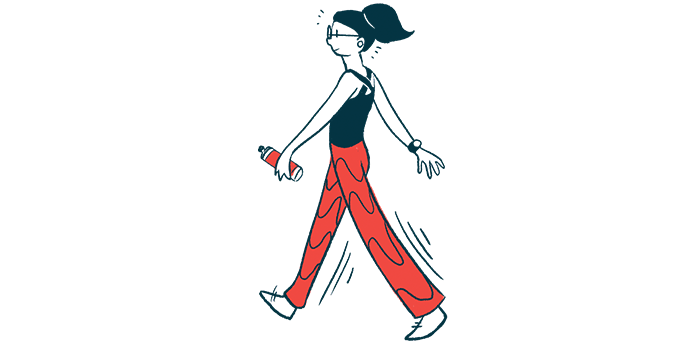PoNS Stimulation Device for MS Gait Problems Due in US Next Year
Written by |

PoNS, a non-invasive devise to accompany physical therapy in multiple sclerosis (MS) patients with difficulty walking, will be available on the U.S. market early next year, its developer, Helius Medical Technologies, announced in a quarterly financial update.
Short for Portable Neuromodulation Stimulator, the PoNS system was cleared by the U.S. Food and Drug Administration (FDA) in March as a short-term treatment for adults, ages 22 and older, with mild-to-moderate symptoms when used in conjunction with supervised therapeutic exercise programs.
The device consists of a mouthpiece placed on a patient’s tongue, which is connected via a cord to a controller worn around the neck. Through the mouthpiece, the device sends small electrical signals to the brain.
These electrical signals are thought to promote neuroplasticity (the brain’s ability to “rewire itself” in response to new experiences), which may improve the benefits of rehabilitation therapy for people with relatively mild MS.
Helius is now taking steps to make its device available by the close of March, according to Dane Andreeff, the company’s president and CEO.
Helius has “secured many of the required state licenses that will enable us to distribute and sell our PoNS device and are now cleared to sell in approximately 85% of states in the U.S.,” Andreeff said. His company estimates that about 130,000 patients in the country would be eligible to use the device.
FDA approval was based on findings from two clinical trial trials. In one (NCT04498039), sponsored by the University of Wisconsin at Madison, 20 people with MS-related walking problems undertook a standard exercise program, and were randomized to add-on use of the PoNS device or a sham device providing no electrical stimulation.
PoNS group patients were seen to have a statistically and clinically significant improvement in Dynamic Gait Index (DGI), by an average of 7.95 points after 14 weeks compared with the sham group. (DGI assesses walking ability; specifically, the test was designed to assess the likelihood of falling.)
“We plan to begin building our commercial team and appropriately engage centers of excellence to allow them to gain experience with PoNS in the target population, with the goal that they will then disseminate their experience with PoNS to colleagues and health care providers,” Andreeff said. “The focus of these efforts will include the 10 states we have identified that comprise more than 50% of the targeted MS patients.”
Helius is also working with payers to ensure that pricing for the PoNS device is “in line with benchmark pricing for comparable devices used in the neurorehabilitation space,” he added.
PoNS is also approved in Canada to help treat walking difficulties due to MS, in conjunction with physical therapy.



